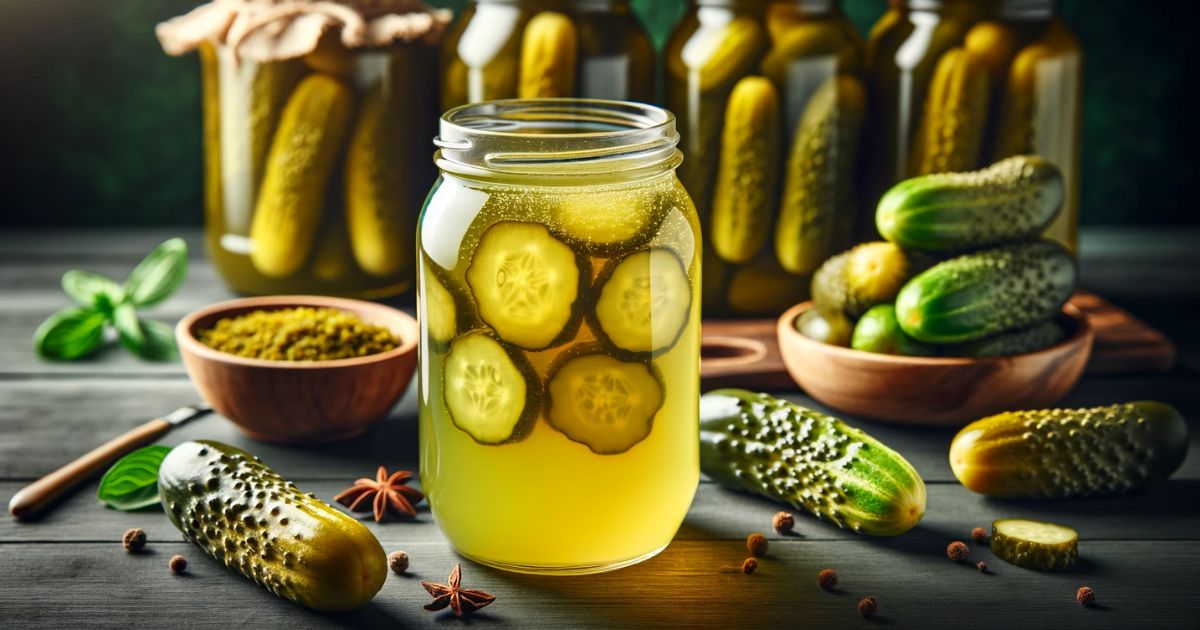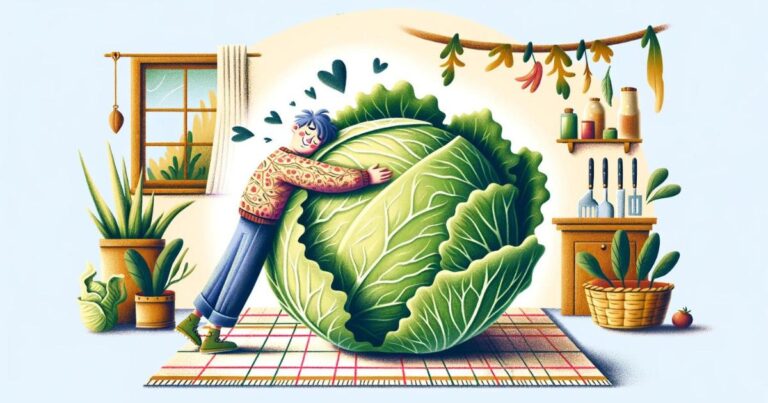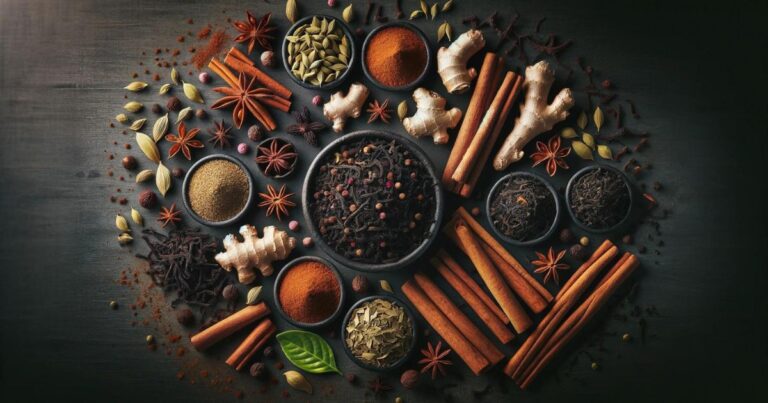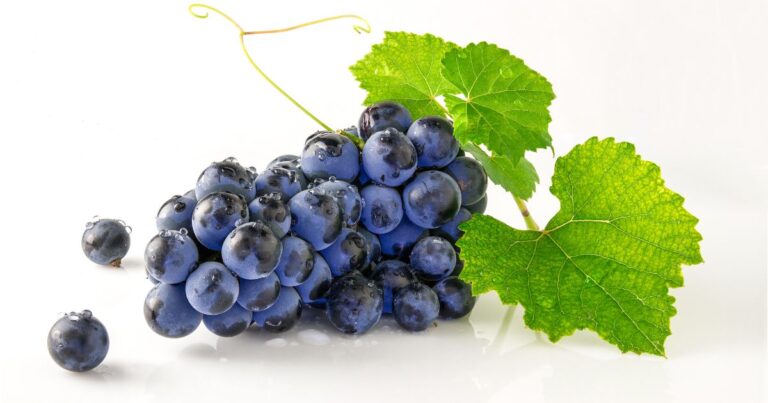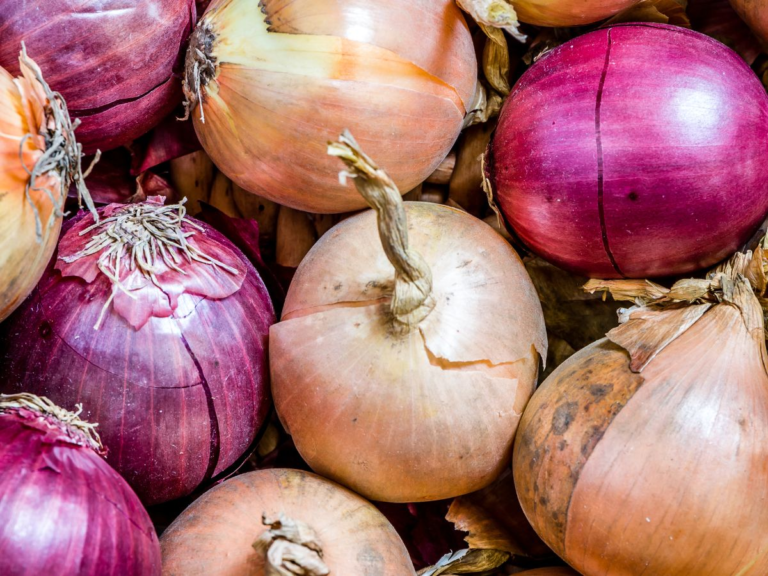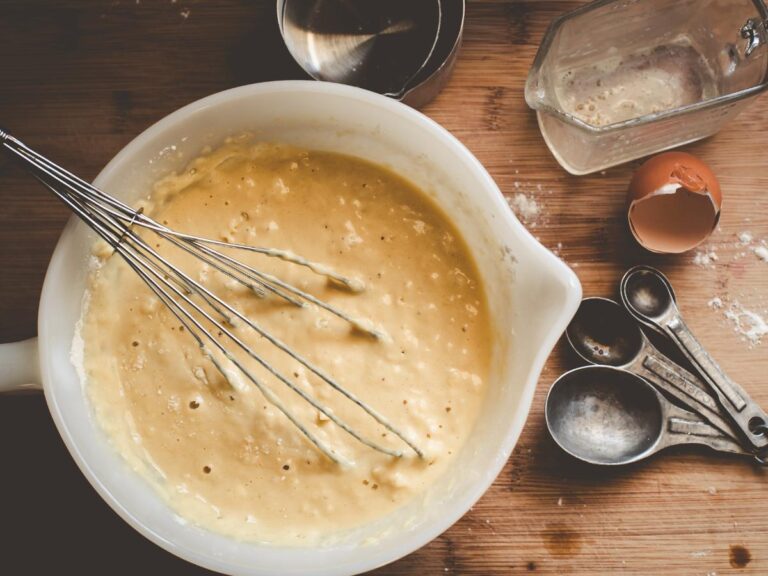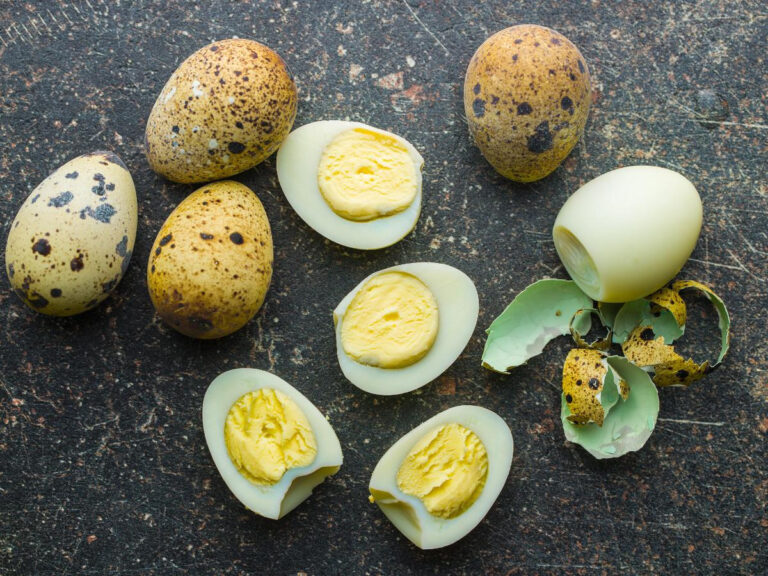The Effects Of Pickles on Your Bowel Movements Will Astonish You
It might sound funny to some, but a title so obscure it can cause quite the chuckle. Do Pickles make you poop, though? All Joking aside, this is a serious question that most people suffering from chronic constipation or irritable bowel syndrome have to wonder about. Before testing this out on your own, have a good read, and let me explain how this all works.
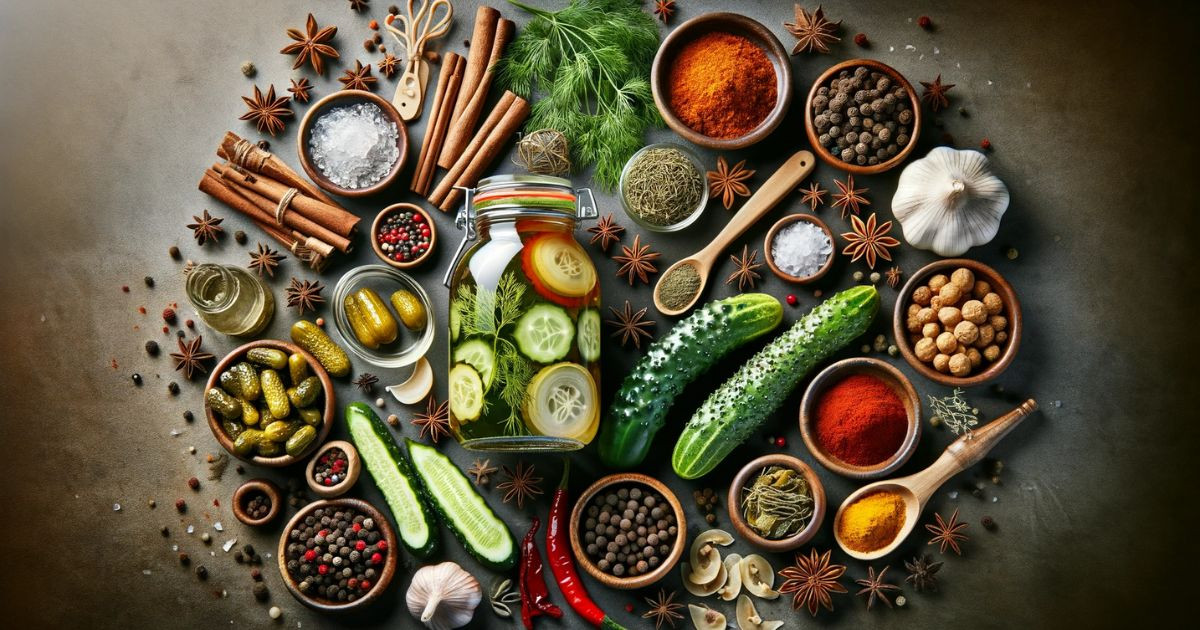
From The Sour Tang of Pickle Juice to the high water content of a crunchy cucumber brined in pickling goodness.
I want to explain some things close to my heart and closer to your toilet.
Let’s get ready to tackle a topic that’s both intriguing and a tad bit quirky – do pickles make you poop?
Now, I know what you’re thinking: “Why on earth is a professional chef dabbling in such… digestive matters?”
Today, you will explore the world of pickles and their impact on our digestive system, along with my experiences from years of pickling and indulging.
Whether it’s a jar of dill pickles or a shot of that zesty pickle juice in your turmeric ginger juice, we’ve all encountered them.
But what exactly happens after we savor that last bite or gulp?
Are you ready for this one? It’s going to be fun, but also, it’s going to be informative, a bit cheeky, and absolutely pickle-licious!
Table of Contents
Do Pickles Make You Poop?

I’ll guide you through the surprising effects of pickles on our bowel movements, and trust me, it’s more fascinating than you might think.
We will uncover everything from the nutritional profile of these crunchy delights to the hidden benefits like if pickles can help you lose weight as well as the cautions of pickle juice.
Yes, we’ll address the question: Can eating pickles and their juice help relieve constipation and promote regularity? What’s happening inside us when consuming pickles, and how does it affect your bowel movement?
The Nutritional Profile of Pickles and Pickle Juice
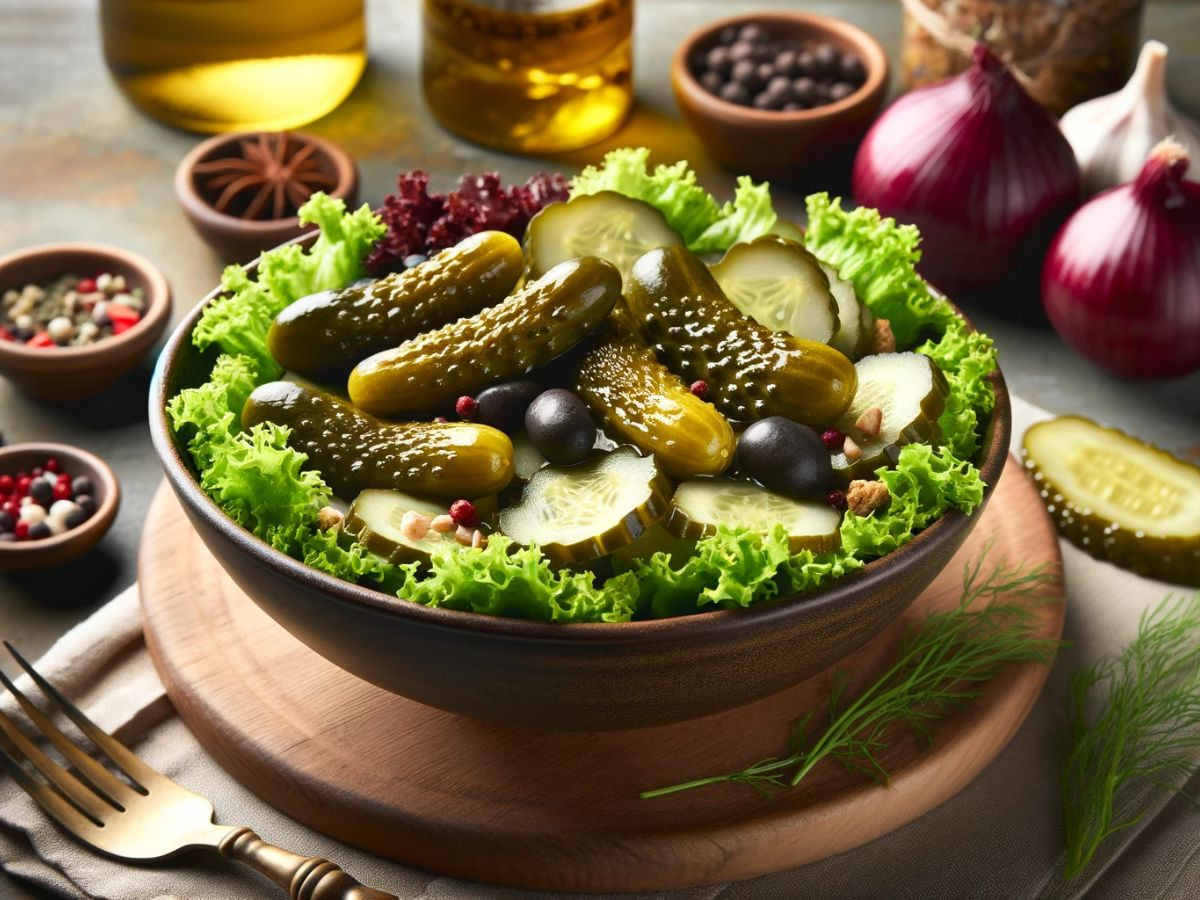
In their simplest form, pickles are cucumbers with a serious makeover. They’re soaked in a solution of water, vinegar, and a symphony of spices, transforming them from humble cucumbers into the crunchy, tangy pickles we adore.
Low in Calories: Great news for snack lovers – pickles are low in calories! This means you can munch on a few without worrying about your waistline.
Hydration Hero: Cucumbers are known for their high water content, and this trait isn’t lost in pickling. Letting the body retain water is key for good digestion, folks!
Vitamins and Minerals: While not a multivitamin, pickles pack some nutritional punch. They contain vitamin K, essential for blood clotting, and some B vitamins. Plus, there are minerals like potassium, which is a big deal for overall health.
The Vinegar Factor: The vinegar in pickle juice is a bit of a star. It’s been known to have some health benefits, including aiding digestion.
Fermentation for the Win: If you’re eating naturally fermented pickles, you’re in for a probiotic treat. These pickles can promote gut health thanks to the good bacteria involved in the fermentation process.
Pickles are more than just a tasty condiment; they’re a complex mix of hydration, essential nutrients, and, in some cases, probiotic goodness.
How Pickles and Pickle Juice Affect Digestion and Bowel Movements
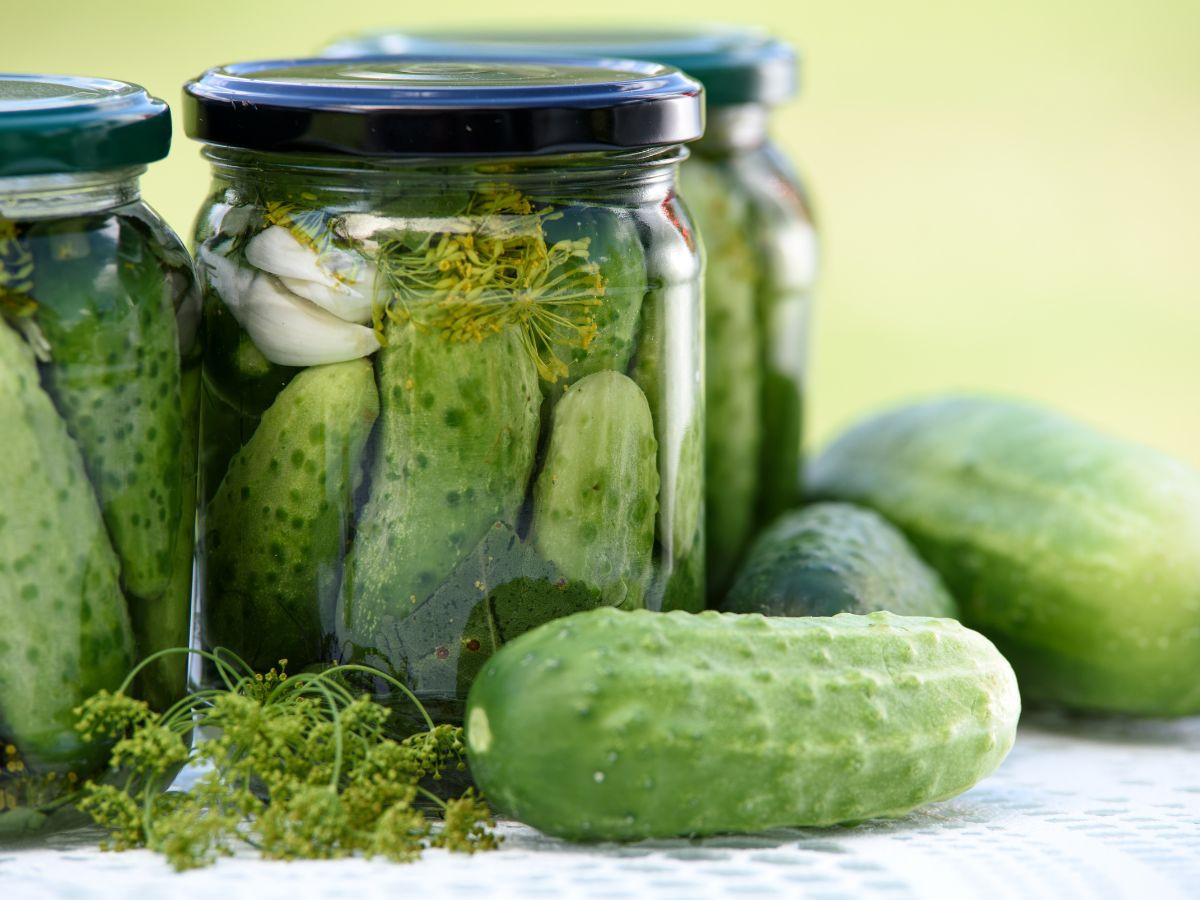
Now, let’s get to the heart of the matter: the impact of pickles and pickle juice on our digestion and bowel movements. I’ve always been intrigued by how our foods affect our bodies.
So, let’s break down what happens when you crunch into that delicious pickle or sip on some tangy pickle juice.
Fiber Content: First up, fiber. Though pickles are not fiber powerhouses (since cucumbers are low in fiber), they contribute to your daily intake. Fiber is a key player in digestion, helping to bulk up and soften stool, aiding in a smoother bowel movement. A little pickle with your meal can add extra fiber your body needs.
The Vinegar Effect: The vinegar in pickle juice is where things get interesting. Vinegar has been known to stimulate the digestive system. It helps break down food in the stomach, leading to improved digestion and, subsequently, a more regular bowel movement. So, that tangy juice left in the pickle jar might just be your gut’s new best friend.
Probiotic Properties: For those pickles made through natural fermentation (think sauerkraut and Korean kimchi), there’s a bonus: probiotics. These beneficial bacteria are champions for gut health, helping balance the gut flora. A healthy gut flora is crucial for smooth digestion and can prevent constipation and irregular bowel movements.
Hydration Helper: Remember, pickles have a high water content. Hydration plays a vital role in digestion. It keeps the intestines smooth and flexible, which helps in preventing constipation. So, those pickles are more than just tantalizing your taste buds; they also keep you hydrated.
Sodium Content: A quick caution – pickles are high in sodium. While sodium is essential for body functions, too much can lead to dehydration, which is counterproductive for good bowel movements. So, enjoy your pickles in moderation.
While pickles might not be the ultimate cure for serious digestive issues, they have certain properties – fiber, vinegar, probiotics – that can positively influence digestion and potentially help with regular bowel movements.
Relieving Constipation: The Role of Pickle Juice
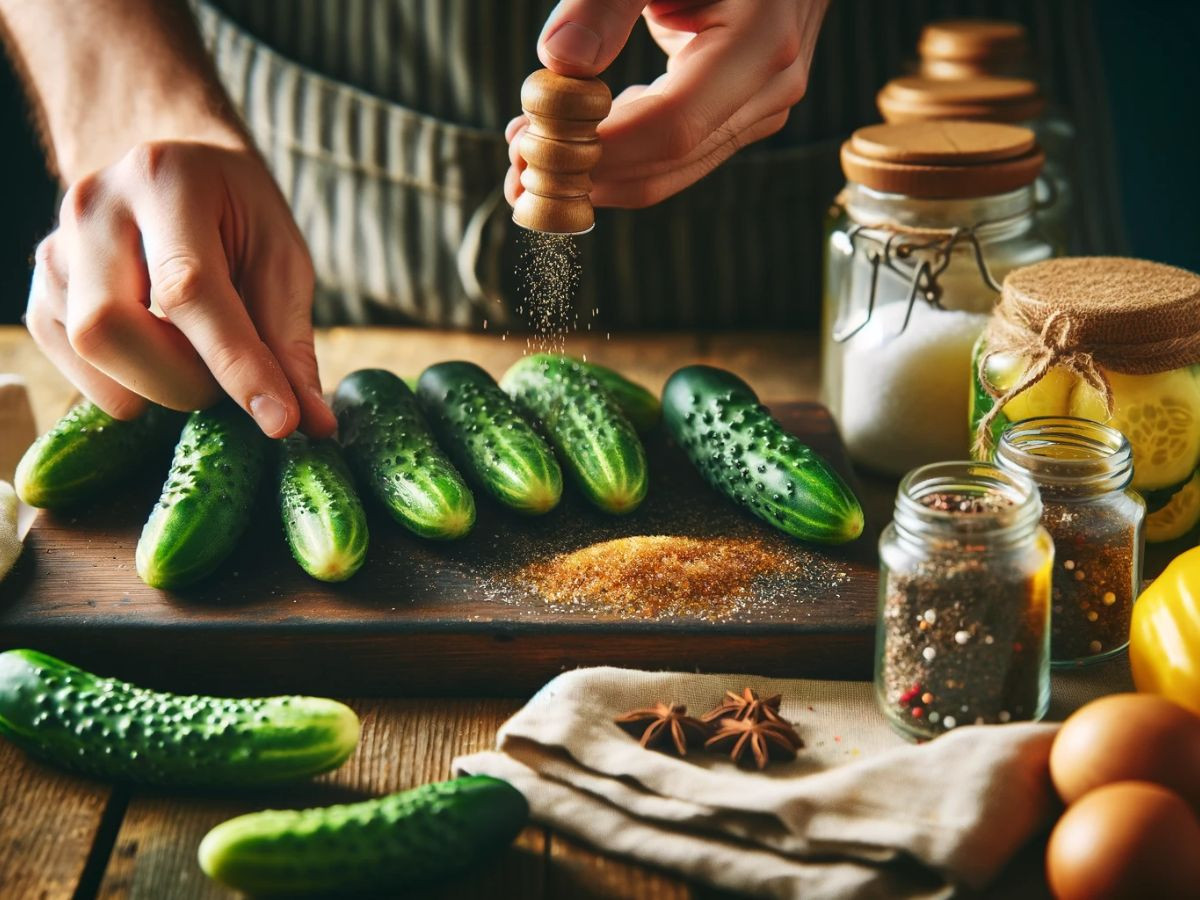
Moving on from the crunchy pickles, let’s talk about a lesser-known kitchen hero – pickle juice.
Pickle juice, with its unique blend of vinegar, water, and spices, has some properties that can be beneficial for those struggling with constipation:
Vinegar as a Digestive Stimulant: The vinegar in pickle juice can act as a mild laxative, stimulating the digestive system. It helps to get things moving in your gut, which can be a relief if you feel backed up.
Hydration Boost: Often, constipation is partly a result of dehydration. Since pickle juice has a high water content, it can help hydrate the body and, in turn, ease constipation.
Electrolyte Balance: Pickle juice is rich in electrolytes like sodium and potassium. Proper electrolyte balance, including those in the digestive tract, is crucial for muscle function. This balance can help maintain regular bowel movements.
Probiotic Potential: If your pickle juice comes from naturally fermented pickles, it might contain probiotics. These good bacteria can improve gut health, essential for regular bowel movements.
How to Use It: If you’re considering trying pickle juice for constipation, start with a small amount, like a teaspoon or two, to see how your body reacts. Remember, too much can be counterproductive due to the high sodium content.
While pickle juice isn’t a guaranteed fix for constipation, it’s certainly worth a try, especially if you love that tart, tangy flavor.
5 Health Benefits of Drinking Pickle Juice
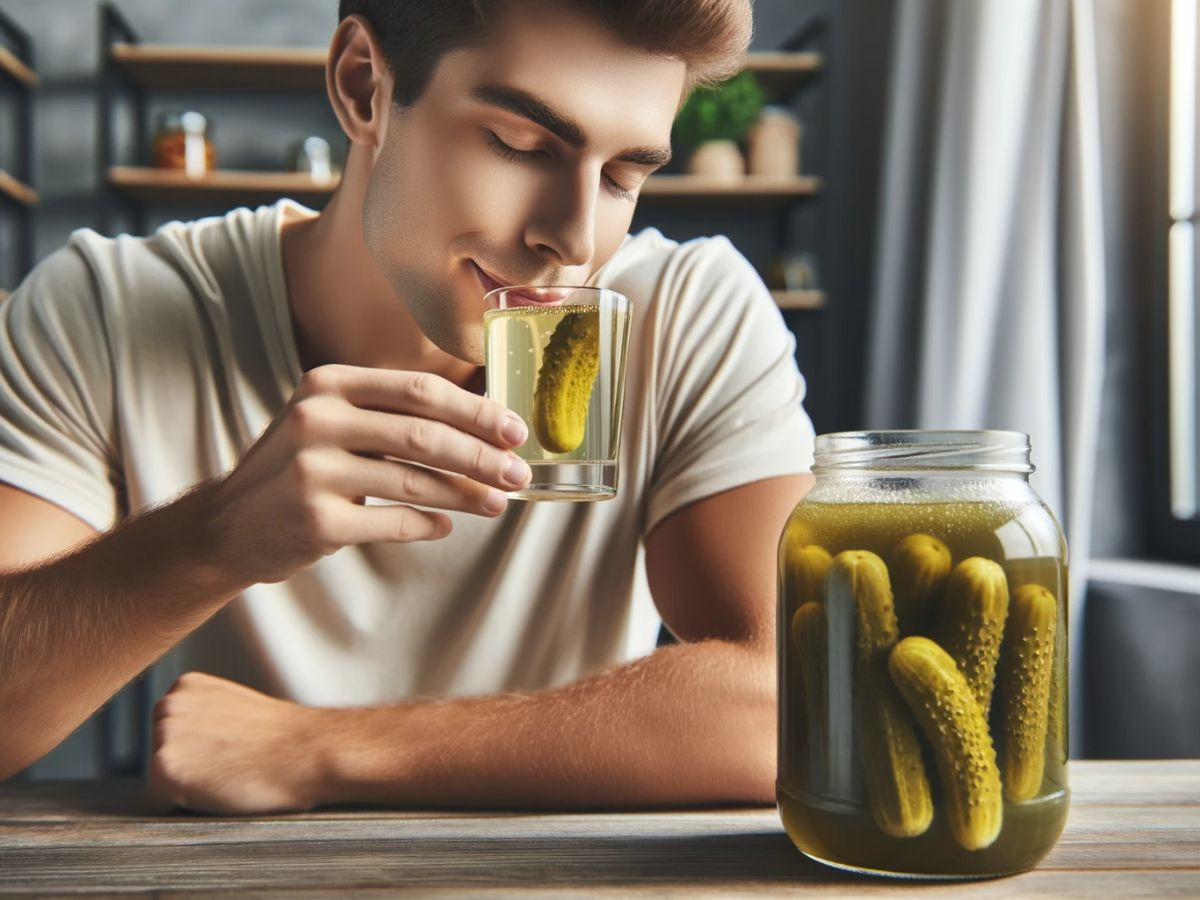
Now, let’s pour ourselves into the world of pickle juice and its surprising health benefits. As a chef who loves to explore the hidden virtues of everyday ingredients, I find the benefits of pickle juice quite remarkable.
Soothes Muscle Cramps: Athletes swear by pickle juice for a reason. Thanks to its vinegar content and electrolytes, it’s believed to help relieve muscle cramps quickly. These components can help replenish electrolyte balance, which is essential for muscle function, especially after a workout.
Aids in Hydration: Pickle juice’s high water and electrolyte content make it an excellent hydration aid. In scenarios where you’re sweating a lot, like during intense exercise or on hot days, sipping some pickle juice can help maintain the body’s fluid balance and electrolyte imbalance.
Rich in Antioxidants: Pickles, and by extension, their juice, contain antioxidants like vitamin C and E. Antioxidants are vital for fighting off free radicals in the body, reducing oxidative stress, and promoting overall health.
Supports Weight Loss Efforts: The vinegar in pickle juice may support weight loss efforts. Vinegar has been shown to help control blood sugar levels and reduce appetite, making it a handy ally in your weight management journey.
Enhances Digestive Health: We’ve already touched on this, but it’s worth repeating – the vinegar in pickle juice can stimulate digestion and improve gut bacteria health, especially if it is from naturally fermented pickles.
The high sodium content means it’s best enjoyed in small doses.
Also, individuals with certain health conditions like hypertension should exercise caution.
Precautions and Considerations
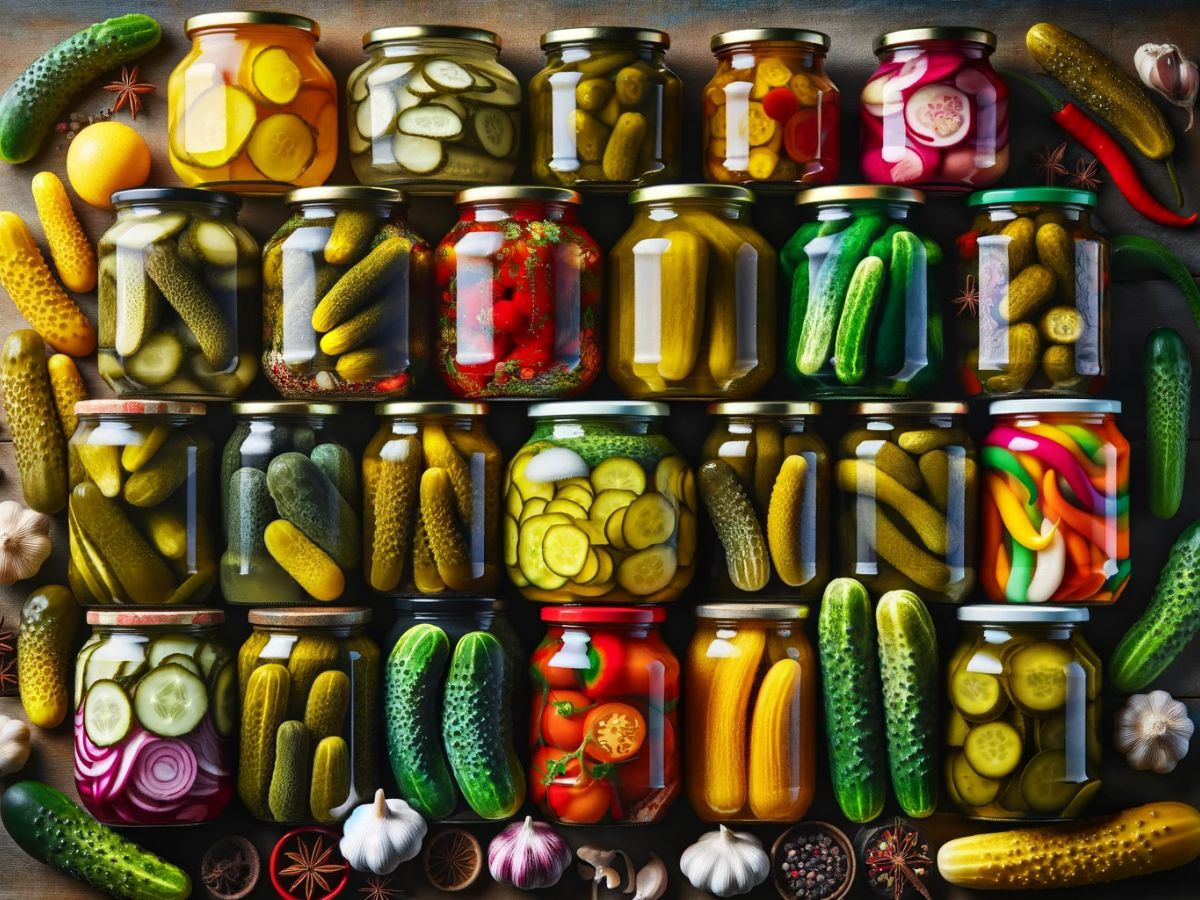
While pickles and pickle juice can be beneficial, there are a few things to remember, especially for those tempted to go overboard with how much pickle juice they consume
High Sodium Content: Pickles and their juice are high in sodium. Too much sodium intake can lead to health issues like high blood pressure and water retention and could be a concern for people with heart conditions and people prone to upset stomach.
Acidity: The vinegar in pickles is acidic, which can be a double-edged sword. While it offers health benefits, too much acidity might lead to issues like acid reflux or stomach ulcers. You might want to limit your intake if you have a sensitive stomach, stomach cramps, or a history of gastrointestinal issues.
Impact on Tooth Enamel: The acid in pickle juice can also affect your tooth enamel over time. Try to rinse your mouth with water after consuming pickle juice to neutralize the acid.
Allergies and Intolerances: Some people might be allergic to pickle ingredients, like mustard seeds, dill, or even cucumbers. Always check the label if you have known food allergies.
Pregnancy Considerations: Pregnant women often crave pickles but should be mindful of the high sodium content.
Quality of Pickles: Lastly, the quality of the pickles matters. Opt for natural, preservative-free pickles whenever possible. If you’re adventurous, try making your own at home – it’s easier than you think, and you can control what goes into them!
While pickles and pickle juice can be a healthy addition to your diet, they are not a cure-all and should be consumed with care and moderation.
Conclusion: Do Pickles Make You Poop?
If you’re looking for a tasty way to give your digestive system a little nudge, reaching for a pickle might be a good start.
However, it’s important to remember that pickles are not a one-stop solution for digestive woes. Their effectiveness can vary from person to person, and they should be consumed as part of a balanced diet.
The high sodium content and acidity also mean that pickles and pickle juice should be enjoyed in moderation, especially if you have specific health concerns like hypertension or a sensitive stomach.
Whether it’s aiding in hydration, providing a few essential nutrients, or potentially helping with regular bowel movements, pickles have more to offer than just a crunch.
FAQ And Additional Information:
Is pickles a natural laxative?
Pickles are not typically classified as a natural laxative in the same way as foods known for their laxative solid properties, like prunes or castor oil.
However, some components of pickles can have a mild laxative effect and may aid digestion and produce increased bowel movements and regularity.
Vinegar: The vinegar in pickles, especially pickle juice, can stimulate the digestive system and may help with mild constipation.
Hydration: Pickles have a high water content, and staying hydrated is essential for preventing constipation.
Fiber: While pickles are not high in fiber compared to many other fruits and vegetables, they contain some fiber (especially if they still have the cucumber peel), which is important for digestive health.
Probiotics can contain probiotics if the pickles are naturally fermented (like traditional dill pickles or kimchi). Probiotics can help maintain a healthy balance of bacteria in the gut, which is important for regular bowel movements.
Do pickles give you diarrhea? Irritable bowel syndrome
Too Many Pickles can contribute to diarrhea in some individuals, particularly those with sensitive digestive systems, to spicy or acidic foods or conditions like Irritable Bowel Syndrome (IBS).
High Sodium Content: The high salt content in pickles and too much pickle juice can lead to dehydration. When the body tries to counteract this by drawing water into the intestines, it can result in loose stools or diarrhea.
Vinegar and Spices: The acidity of the vinegar and the spices used in pickling can irritate the digestive tract, especially in people with sensitive gut or gastrointestinal conditions like IBS. This irritation can sometimes lead to diarrhea pickles.
Fermentation and Probiotics: For some individuals, especially those not accustomed to fermented foods, the probiotics in naturally fermented pickles (like traditional dill pickles or kimchi) can cause an adjustment period in the gut flora, which might temporarily lead to diarrhea and food poisoning.
Individual Sensitivities: Some people may have specific sensitivities or allergies to pickle ingredients, such as certain spices, which can trigger digestive upset and diarrhea.

